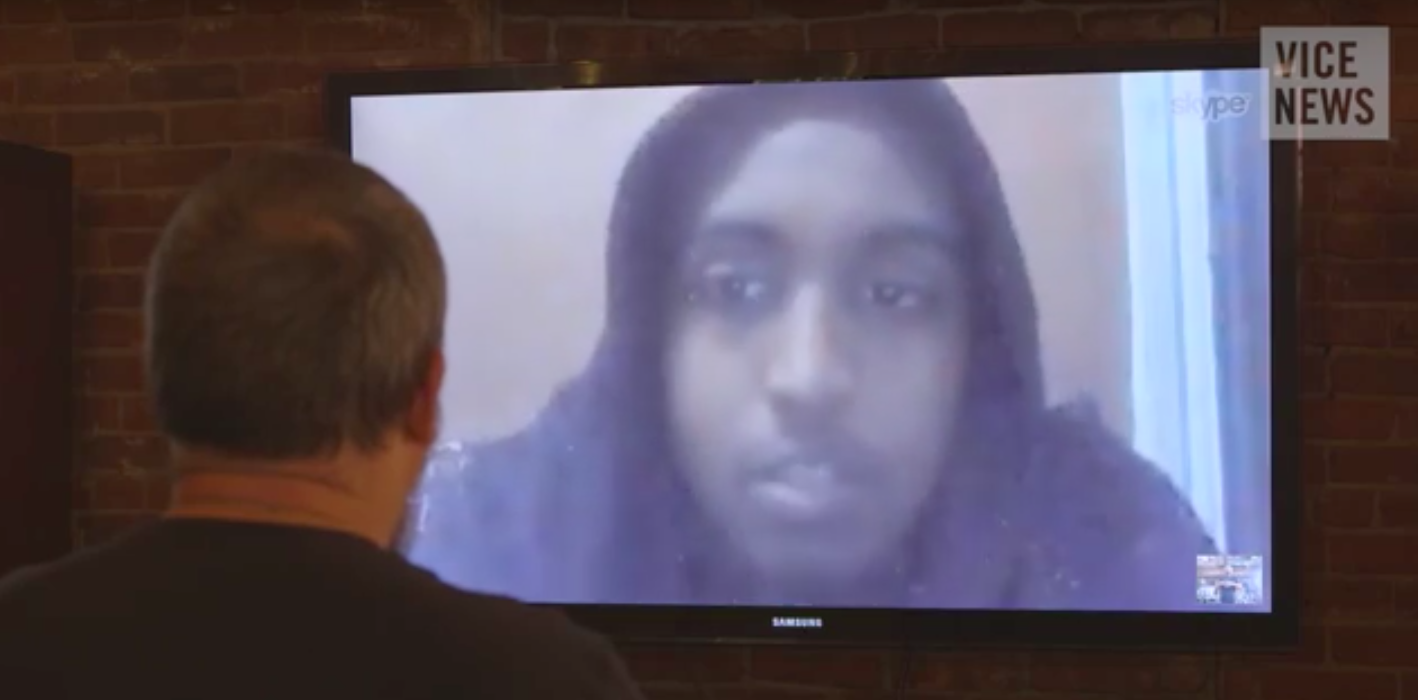A Canadian news outlet at the centre of a closely watched media-freedom case is calling on the RCMP to drop its demand for a journalist’s background materials used for stories on a suspected terrorist in light of reports that the man is in fact long dead.
In a letter to federal prosecutors this week, lawyers for Vice Media say they would abandon their attempt to fight the demand at the Supreme Court of Canada if the RCMP were to drop its production order, which two courts have upheld.
The materials in question relate to three stories reporter Ben Makuch wrote in 2014 about Farah Shirdon, a Calgary man whom Canadian authorities have charged in absentia with various terrorism-related offences. However, the American military now maintains Shirdon was killed in 2015.
“In our view, the main condition and basis for the production order, i.e. the criminal investigation and prosecution of Mr. Shirdon, is no longer present,” lawyer Iain MacKinnon said in the letter obtained by The Canadian Press. “Therefore, the production order is no longer valid or enforceable.”
RCMP have been trying to force Makuch to turn over screen captures of his instant messaging chats with Shirdon, who was quoted as making threats against Canada from the Middle East.
In a decision in March that set a binding precedent, Ontario’s top court affirmed an earlier ruling that Makuch comply, despite objections from Vice and several media groups. The Supreme Court was expected to say within the next several months whether it would weigh in as Vice is asking it to do.
One crucial factor clouding the legal proceedings is whether Shirdon is in fact dead.
In April, the U.S. State Department placed Shirdon on its designated terrorist list, suggesting he was still alive. However, as Global News first reported earlier this month, U.S. Central Command, which oversees American military operations in Syria and Iraq, maintains Shirdon died two years ago.
“We can confirm Farah Mohamed Shirdon was killed in July 2015,” a command spokesman said in an email Wednesday.
The State Department said it was looking into the discrepancy.
Federal prosecutor Sarah Shaikh refused to discuss the case because it’s before the courts. RCMP did not respond to a request for comment on Wednesday.
In an interview, MacKinnon said he could see no plausible reason for the RCMP to pursue Vice if Shirdon is dead, while Makuch again decried the RCMP’s action.
“Any time a government pressures a reporter to give up his sources, it sets a very dangerous precedent, one that strikes at the foundation of our democracy,” Makuch said. “Canada should be a beacon for freedom of the press internationally, not a cautionary tale.”
Vice spokesman, Chris Ball, said the outlet was hoping RCMP and the federal government would now “drop their fishing expedition.”
Vice’s leave application urges Canada’s top court to hear the case because of what it calls the current legal void around protecting a journalist’s communications with non-confidential sources.
“Many key questions remain unanswered or are the subject of conflicting appellate decisions,” the leave memorandum states. “Clarification is desperately needed.”
Even if RCMP drops its production order, essentially rendering the case moot, the Supreme Court could decide to get involved as a way to clarify the law.
However, continuing the fight would not only add to Vice’s already stiff legal bills, it would also risk further entrenching the precedent set by the Ontario Court of Appeal, which ruled it would be wrong to interfere with court-approved police access to evidence relevant to an investigation.
Media organizations, which intervened in the Ontario appeal and would likely ask to intervene if the case does end up in the Supreme Court, have warned the upheld production order creates a “chill” that would make sources reluctant to speak to journalists.
“The best outcome…would be the RCMP drop the production order and the Supreme Court still agrees to hear it, and then strikes down the production order so that precedent isn’t set for future cases,” said Duncan Pike, with the group Canadian Journalists for Free Expression.
At the same time, Pike said he would understand if Vice abandoned its challenge given that Makuch has already been through a long ordeal.
Regardless, Pike said, media organizations might push for legislative changes aimed at enhancing protections for journalists’ sources.
This story is reprinted with the permission of The Canadian Press.

